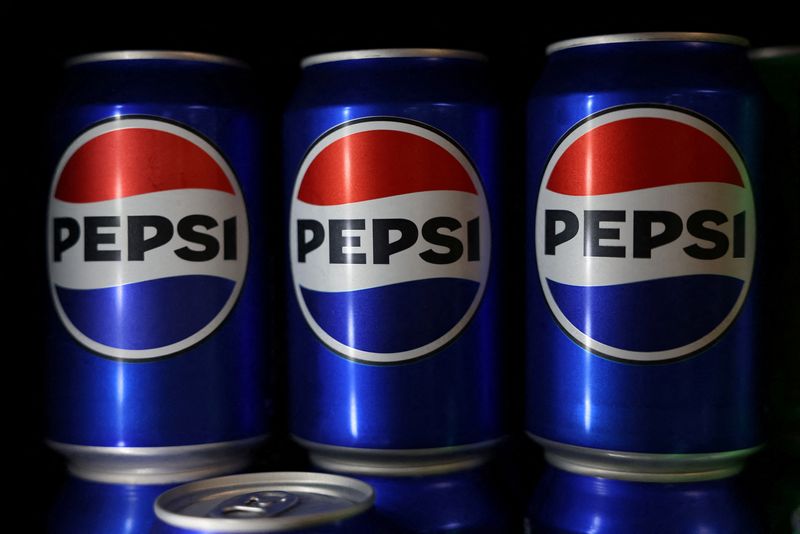Some PepsiCo investors cautious of Elliott’s plan to spin out bottling
By Jessica DiNapoli and Svea Herbst-Bayliss
NEW YORK (Reuters) -Some investors in PepsiCo support suggestions by activist shareholder Elliott Investment Management that the global food and beverage company cut costs and ditch sleepy brands like Quaker, but sound more cautious about the hedge fund’s boldest idea – to hive off the soda maker’s bottling network.
Elliott has said the move, which mirrors actions taken by Coca-Cola nearly a decade ago, would increase PepsiCo’s margins, allow the $200 billion company to focus on new chips and sodas and turn it into a simpler, more-focused organization.
Earlier this month, Elliott unveiled a $4 billion stake in PepsiCo – one of its largest investments- and released a 75-page report with ideas on how to boost profit at the company, whose share price has tumbled nearly 20% in the last year, underperforming a 2% fall in the broader S&P consumer staples index.
The maker of Mountain Dew, Gatorade, Lay’s, Doritos, Cheetos and many other brands should start looking at spinning off its bottling business in the coming months, according to Elliott’s presentation. But in the near term it must first improve its beverages business which has lost ground to rivals like Keurig Dr Pepper’s Dr. Pepper, the hedge fund said in a letter to the company’s board on September 2.
However, three long-term investors said that separating bottling is costly and could take years, further weighing on PepsiCo’s margins and earnings over that time.
“It seems unlikely that the current management team has the readiness to refranchise,” said Kai Lehmann, portfolio manager at Flossbach von Storch, one of PepsiCo’s top 30 shareholders, who agreed the move looks attractive at first sight but said it would hurt margins for some time.
Elliott and PepsiCo are having ongoing conversations about Elliott’s proposal, said a source close to the matter who was not authorized to publicly speak about it.
PepsiCo said it maintains an active dialogue with shareholders and that it will review Elliott’s presentation.
Elliott said in its presentation that operating margins in PepsiCo’s North American beverage business trail Coca-Cola’s by as much as 10 percentage points, which the company could recoup if it refranchised.
PepsiCo’s operating margins were 14% last year, up from 13.1% in 2023. Coke reported operating margins of 21.2% and 24.7% for the same time periods.
New York-based PepsiCo, whose namesake cola is the second-largest soda brand globally, has struggled to revive sales in the United States as consumers push back on price hikes and smaller sizes of its products.


